All Quiet on the Western Front (1930)
“You are the life of the fatherland, you boys!”
|
Synopsis: |
|
Genres, Themes, Actors, and Directors:
Response to Peary’s Review: In Alternate Oscars, Peary agrees with the Academy in naming this the Best Picture of the Year, and elaborates on what makes it so enduringly powerful. He writes that while “the boys enthusiastically enlist en masse, all hoping to be heroes”, “once in uniform, they realize that there is no glamour to war” — “instead, there are dictatorial officers, endless marchs, hunger, fatigue, nostalgia for home, rats in the trenches, mud and rain…” Indeed, there is “no heroism. Instead there is confusion, terror, hysteria, madness, amputations, [and] meaningless deaths. All that matters is survival, and those who survive are either insane, without limbs or sight, or unfit to return to civilization where old men still champion wars.” Most chilling and heart-stopping among many powerful moments is “the battle scene in which Arthur Edeson’s camera pans while charging soldiers are mowed down by machine-gun fire” — a scene “as impressive as it is terrifying”, and which “becomes even scarier when soldiers break through and jump into the trenches for hand-to-hand combat.” As Peary adds, “Significantly, not one shot is heroic or glamorizes war; instead we see how vulnerable all soldiers are and want to close our eyes until the fighting stops.” This almost unbearably impactful film will quickly convince you that war really is hell. Redeeming Qualities and Moments: Must See? Categories (Listed in 1001 Movies You Must See Before You Die) Links: |
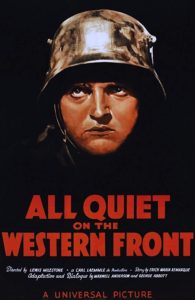
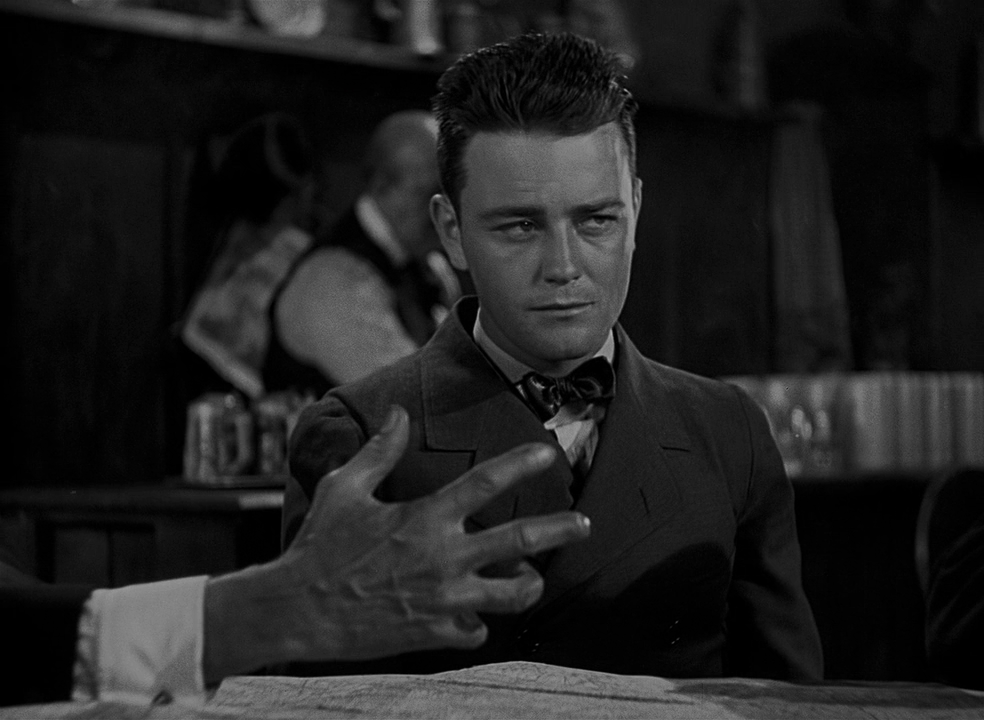
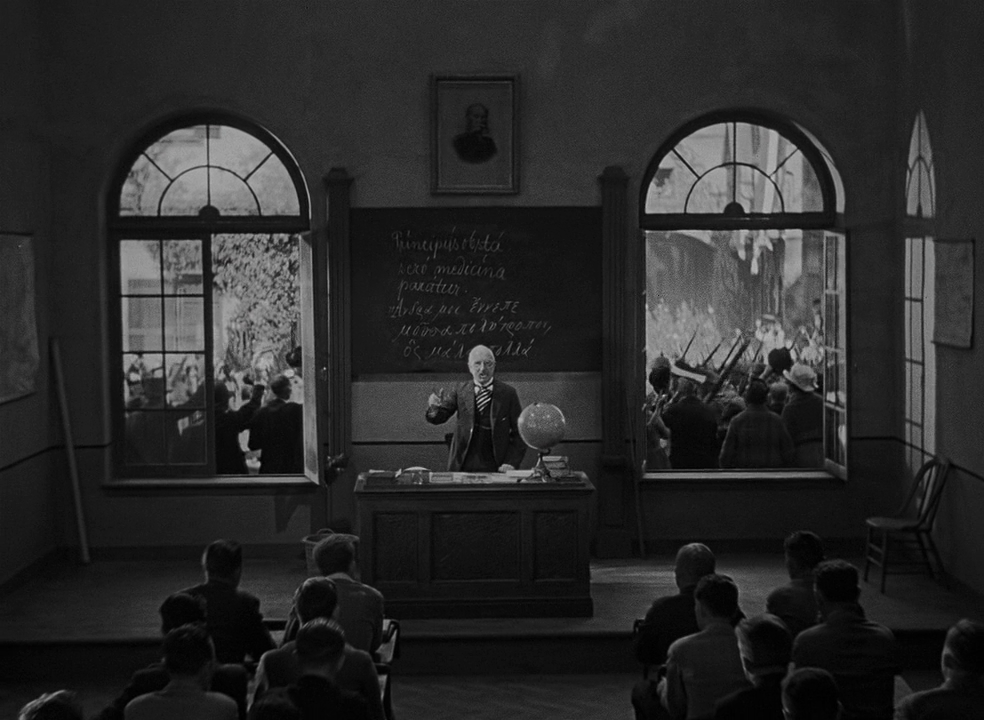

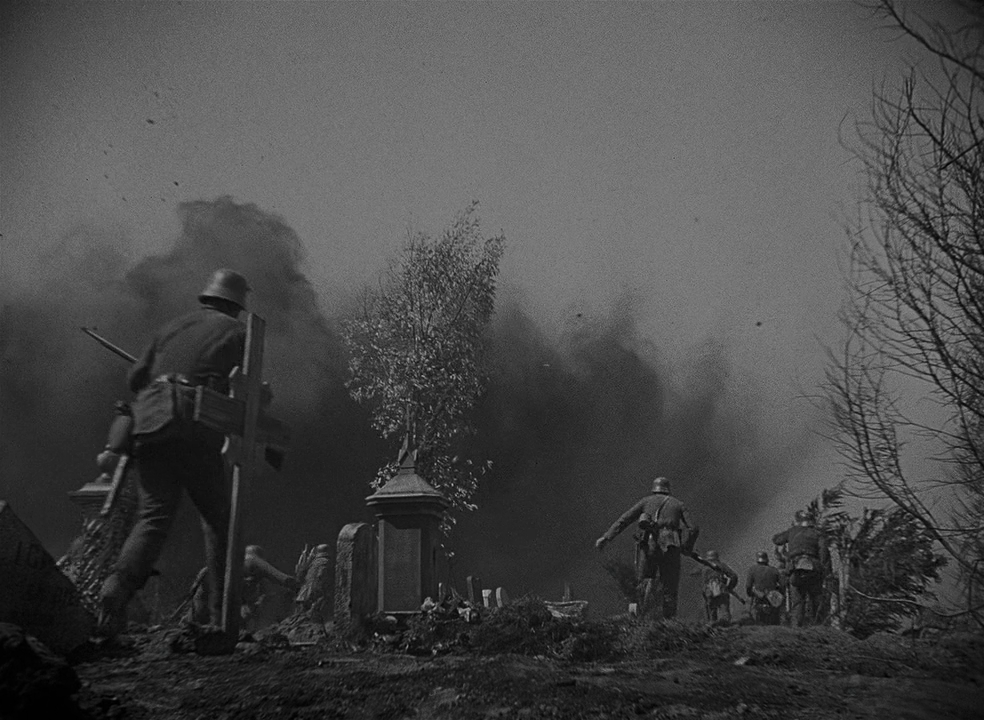
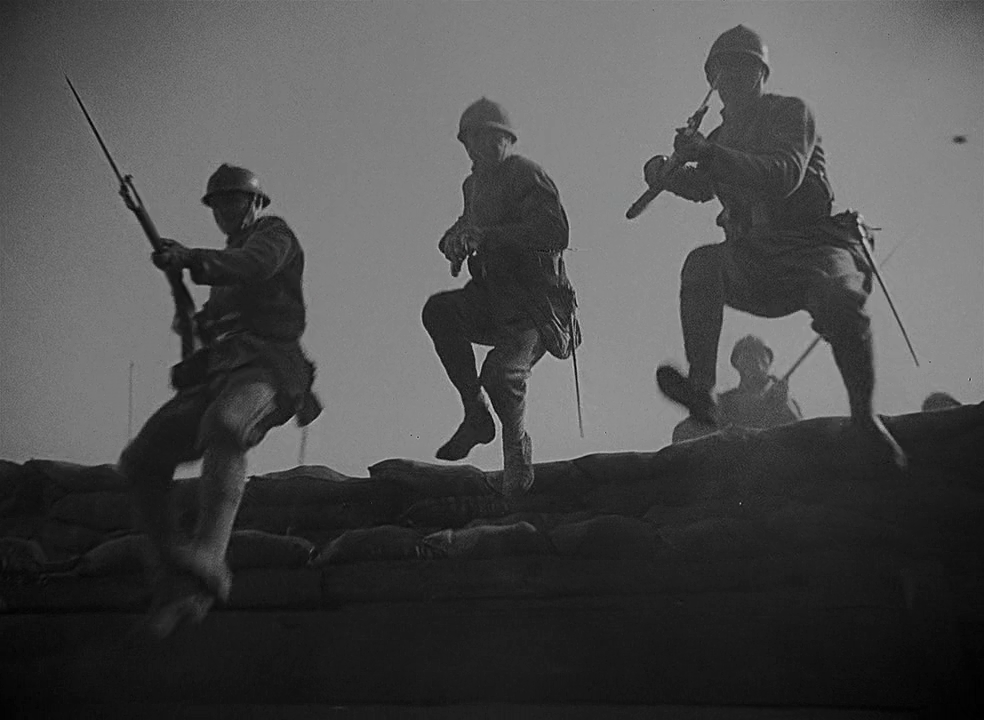

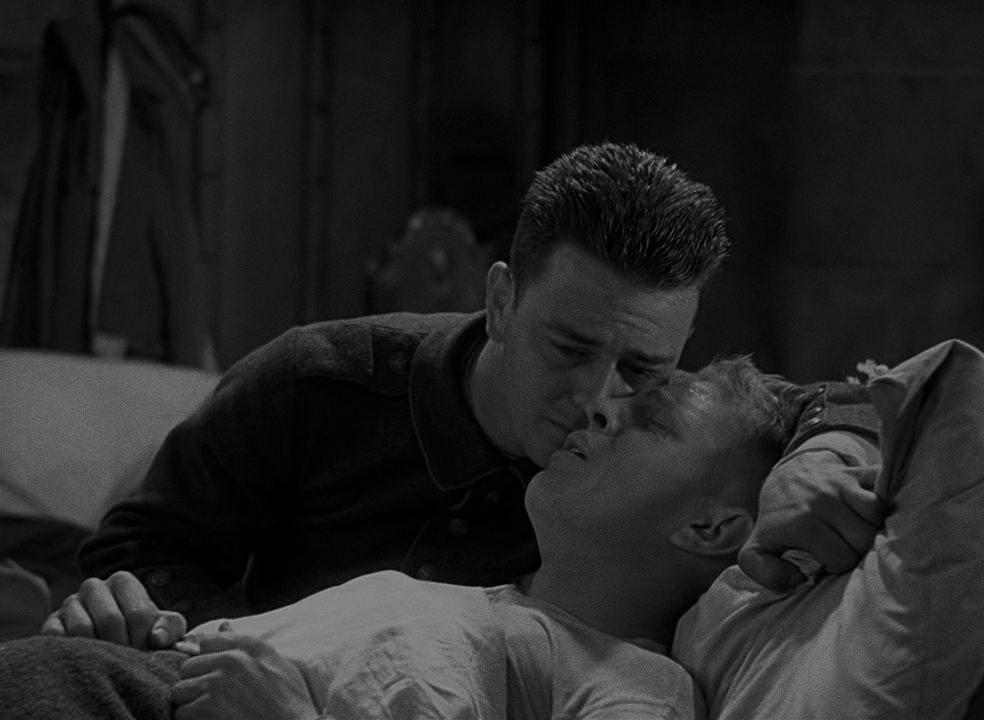
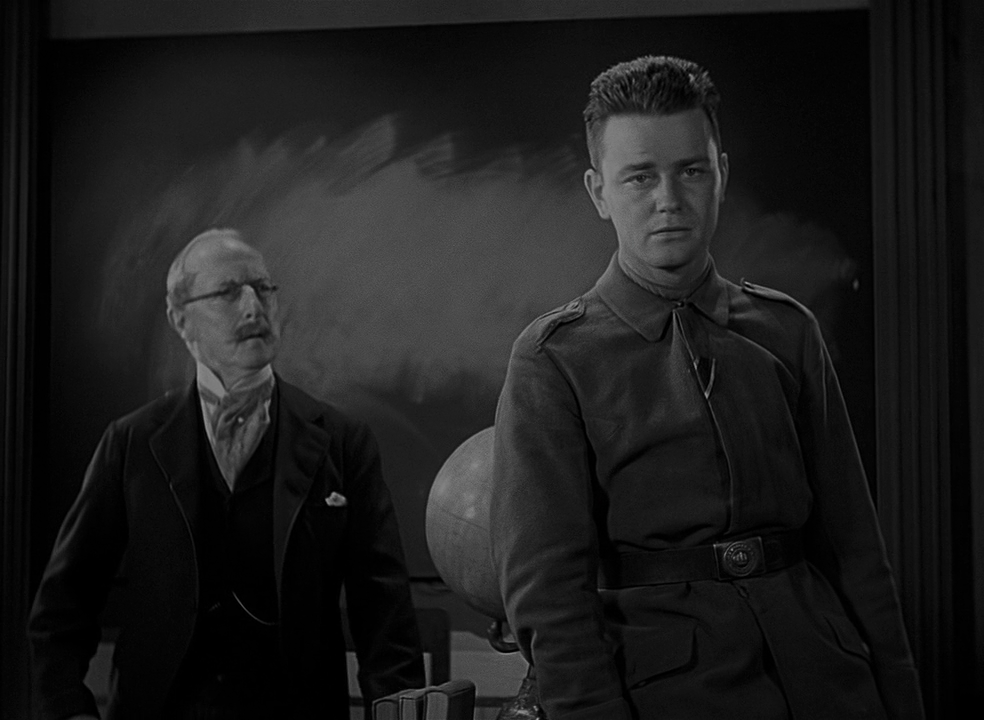
2 thoughts on “All Quiet on the Western Front (1930)”
Yes – a once-must (at least) for its solid place in cinema history. This is a film that is now on its way to becoming 100 years old (!), yet it has retained all of its power; it’s likely it always will.
Plotless and episodic, it nevertheless works as a cohesive whole and there are no scenes that drag. I wouldn’t say that the dialogue scenes are “static” but neither would I say that this is a film that one watches for the acting – it’s more or less purely a director’s vision and Milestone succeeds in anchoring his view.
Fave scene: during a meal break, the soldiers reveal and share their complete befuddlement about the nature and purpose of war while stating accurately what it grows from as well as its almost-complete poverty of purpose.
Definitely a strong must see as one of the earliest anti-war films and a brilliantly crafted cinema classic.